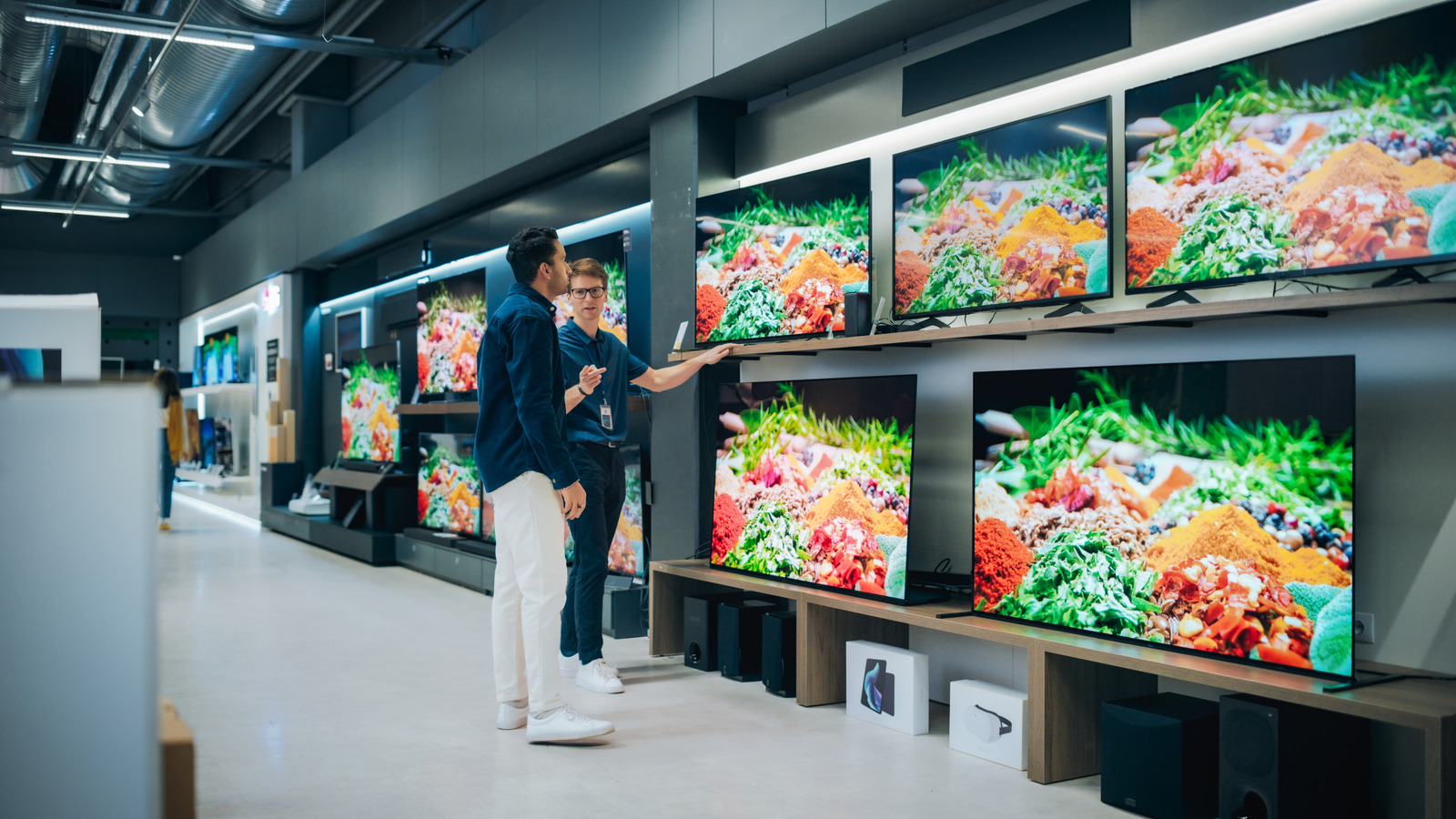Startups On Our Radar spotlights African startups solving African challenges with innovation. In our previous edition, we featured seven game-changing startups pioneering health, artificial intelligence, commerce, and mobility. Expect the next dispatch on October 17, 2025.
This week, we explore seven African startups in the healthcare, human resources, and e-commerce sectors and why they should be on your watchlist. Let’s dive into it:
Labtracka wants to make ordering lab tests as easy as ordering food online (Healthtech, Nigeria)
Labtracka is an online test booking platform that provides an infrastructure for diagnostics and connects patients to medical labs. It operates a B2C business model, where customers can order a test and choose for their samples to either be collected at their home or at a designated lab. For home sample collection, this platform sends its phlebotomist to a user’s address, who collects and transports the sample to the lab. Test results are uploaded to its platform where users can access them once available.
Labtracka doubles as a lab management system (LMS) that gives labs tools to handle operations, manage data, gain insights into their operations, and attract new customers. Labtracka allows users to search for and access information about labs closest to them, including opening hours, tests offered, and cost. The starup has partnered with up to 10 laboratories in Rivers State and has up to 700 labs in its pipeline. It generates revenue through commissions from ordered tests.
Why we’re watching: Labtracker differentiates itself from similar telemedicine platforms, like EzzyCare and Synlab, because of its lab information management offerings. It believes it is providing labs with tools they need to grow and scale. It is also developing “Labtracka Campaigns,” which will let governments or NGOs run region-wide testing drives, helping underserved communities access diagnostics.
Dana AI wants to be the business brain behind Africa’s social commerce boom (AI, Kenya)
In Africa, some small businesses conduct sales on WhatsApp and Instagram. But managing customer messages, follow-ups, and sales manually often takes time. Dana AI, developed by Kenya’s Hartford Tech, is building a system that brings order to that chaos. It’s an AI business growth partner that automates communication, marketing, and customer management for Africa’s small and growing enterprises. Currently in beta, Dana AI runs as a web platform that integrates directly with social and business tools like WhatsApp, Instagram, Facebook, HubSpot, and Salesforce.
Once connected, it can chat with customers, process orders, track conversations across platforms, and update business databases automatically. It also analyses sentiment and identifies churn risks, giving business owners insights they’d otherwise miss. Users can train Dana by uploading FAQs, past conversations, or website content, and the system replies in the brand’s voice. The platform supports 17 languages, from English and French to Yoruba, Swahili, and Hausa, and comes with an autonomy toggle that lets owners decide when the AI should act independently or escalate to a human agent.
Why we’re watching: Dana AI is building an automation layer specific for Africa’s informal and social-first economy. By fusing multilingual support, cross-platform intelligence, and deep local integrations like M-Pesa, it’s positioning itself as the missing link between AI innovation and Africa’s everyday commerce.
Helicode wants to build Africa’s operating system for global tech talent (HRTech, Nigeria)
Helicode is a platform designed to find world-class talent in Africa and connect them with global opportunities. The startup was born from the founder’s observation that companies around the world are searching for cost-effective and high-quality talent, while Africans struggle to find global work opportunities. Helicode wants to bridge that gap by connecting vetted African talent with international employers, starting with those in the fast-growing fields of artificial intelligence (AI) and blockchain.
The platform enables employers to search for talent and assess candidates. Once selected, a talent gets a notification along with a contract stating salary and duration of work. Talents can also be managed on the platform. For talents to be selected, they must register and be vetted. This vetting process is done manually by senior human resource experts. The company intends to integrate AI into the vetting process. The platform is free to access; however, Helicode takes 15% of the talent’s first year salary as a revenue stream. Though the platform hasn’t officially launched, its model is being tested manually with plans to go live in Q1 2026.
Why we’re watching: Helicode stands out for focusing on emerging tech talent, a niche market where demand is exploding globally. Like global platforms such as Andela, Turing, or Deel, Helicode also invests in training, and has upskilled over 300 Africans across 12 countries in AI and blockchain-related fields, according to the founder. Helicode allows employers to pay talents in fiat or stable coins. The company has worked with Liquid Intelligent Technologies, a digital infrastructure provider, and claims to have generated $10,000 in revenue.
MyQura wants to be the Uber for homecare in Africa (Healthtech, Nigeria)
MyQura is a digital care marketplace that connects patients who need ongoing support, from chronic illness management to post-surgery recovery, with verified caregivers, nurses, and physiotherapists. For the founder, getting healthcare at home in Nigeria often meant navigating a maze of unreliable providers and untrained caregivers. MyQura wants to fix that with a digital platform that connects users to verified care professionals. The app allows caregivers to record patient care and progress, including information about how frequent medication was taken or physiotherapy session conducted.
The platform runs on a subscription model, covering tele-consultations, home care, and ongoing support, and provides healthcare training for care professionals. The startup says it has trained over 1,000 caregivers. The platform also includes other features like ambulance requests and medication requests from pharmacies. MyQura allows a verified third-party, likely a relation, to access patient records from anywhere in the world. Hospitals can also use the app to enrol patients into home care and real-time access to the patient’s care records.
To use this app, patients’ national identity numbers (NIN) are requested and verified followed by a consultation with a specialist who designs an adequate care plan. After this, a patient can see and book caregivers within their location.
Why we’re watching: In addition to its features, MyQura is also a marketplace for caregivers. Caregivers who want to receive bookings through the app must have undergone the startup’s training or have a valid training from accredited sources. MyQura partners with hospitals, like the Marcelle Ruth Cancer Centre & Specialist Hospital and Wellpath Physiotherapy Clinic, who request home care for their patients pending a review made by the platform. MyQura intends to integrate AI into the platform for a care assessment and predictive analysis of care outcomes. MyQura differentiates itself from competitors such as GeroCare, which solely focuses on sending certified doctors to patients and not caregivers for supportive care.
aiNova wants to guide African businesses through the AI maze (AI, Nigeria)
Founded in 2022, the Lagos-based company began as a research community exploring emerging tech. Now, the startup works across the private and public sectors, advising organisations on how to use AI to automate processes, manage data, and scale operations. The Lagos-based company offers end-to-end support for businesses and public institutions trying to navigate digital transformation, from figuring out where AI fits to actually building and managing solutions.
Its work runs across three tiers. The advisory arm helps companies and government agencies design AI adoption strategies that align with their goals. Through its AI Lab, aiNova builds and deploys custom solutions that could help businesses with automating manual processes, developing predictive models, or setting up data infrastructure for analytics. The third tier, training and capacity development, equips executives and professionals with the skills to work with AI responsibly and effectively.
Why we’re watching: In October 2025, aiNova launched its AI Readiness Assessment, a free diagnostic tool that shows businesses where they stand on the AI adoption curve and what their next steps should be, a resource once reserved for deep-pocketed corporations. It’s a simplified version of the internal assessments the company once conducted for major clients. The firm has worked with financial institutions, government ministries, and development agencies, and partners with Salesforce, AWS, and Humble AI to localise enterprise-grade AI tools for African clients. Through its AI lab, the startup also helps businesses build and deploy AI solutions.
Foodverse wants to redefine how Africans buy and access food (Foodtech, Nigeria)
Foodverse is building what its founder calls “the Flutterwave of food”, a digital ecosystem that makes feeding as frictionless as fintech. The Lagos-based startup combines marketplace, logistics, and financial tools to fix Africa’s broken food distribution system, where high costs and poor access keep millions food insecure. At its core is the Foodverse marketplace, a multi-vendor platform where farmers and food vendors list both raw and cooked food.
Consumers can browse, add items to cart, or pre-order produce directly from farms, while Foodistics, the company’s logistics arm, ensures fast delivery through a network of distributors. On the fintech side, Food Credit lets users buy food now and pay later in installments. Vendors pay a small commission for sales, while users can subscribe from as low as ₦10,000 annually to access the service. Foodverse currently serves about 100 recurring customers and claims to have aggregated over 50,000 farmers into its supply network. The startup’s ambition is to cut out costly middlemen and make nutritious food affordable to millions across Nigeria.
Why we’re watching: Foodverse is tackling one of Africa’s toughest problems, food access, with the precision of a fintech startup. By merging e-commerce, logistics, and embedded finance, it’s turning food distribution into a connected digital service rather than a fragmented supply chain. Its bet is that if payments can go digital, so can feeding.
That’s all for today. Expect our next dispatch on October 17th. Know a startup we should feature next? Please nominate here.
Mark your calendars! Moonshot by is back in Lagos on October 15–16! Meet and learn from Africa’s top founders, creatives & tech leaders for 2 days of keynotes, mixers & future-forward ideas. Get your tickets now: moonshot..com









